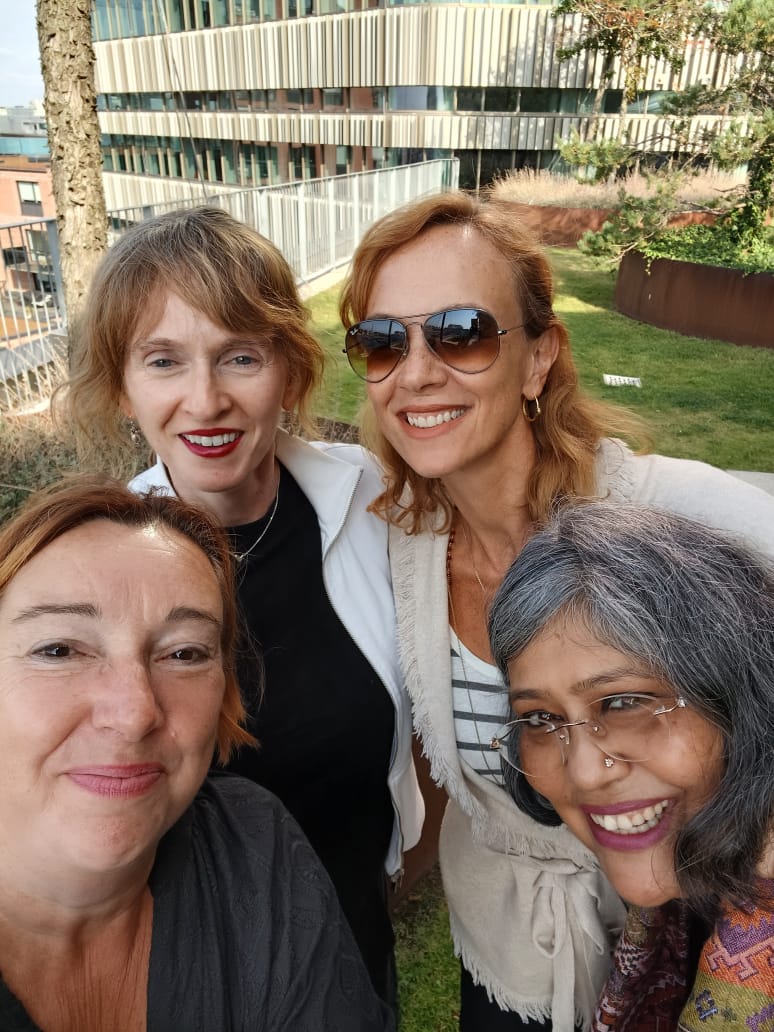Menu
close

The PI PROF ELENA VACCHELLI'S well established work on co-creative and participatory methodologies, the gendered right to the city, social reproduction and women’s access to health services is key to the network and methodological design of the project. The UK Co-I DR DEBORAH JERMYN is the scholar who recently theorised the ‘menopausal turn’ and brings to the table her expertise in cultural and media studies, with a longstanding focus on women and ageing. The international partners for the Network are PROF ANINDITA DATTA whose scholarship on gendered right to the city offers a focus on the Global South. University of Malmö based PROF CARINA LISTERBORN'S vast influence in the field of feminist geography is well known, in particular for its use of intersectional perspectives rooted in urban studies.
MARGARETA RÄMGÅRD - Health Geographer with focus on health promotion, collaborative methods and women, Sweden
GHISLAINE BODDINGTON - Professor, artist, curator and BBC radio presenter, specialising in body responsive technologies and immersive experiences. She is co-founder of a pioneering interactive design collective who have advocated for the living body to be at the heart of the digital debate since the early 1990s.
SWAGATA BASU - Professor and Head of the Department of Geography at SSV College, Hapur, India. Her research interests focus women’s rights including right to the city, working closely with women’s organisations in low-income urban neighbourhoods.
UMUT EREL - Sociologist whose work focuses on intersectional approach to how gender, migration and ethnicity inform practices of citizenship. Her current research focuses on migrant families and citizenship using creative and participatory
approaches.